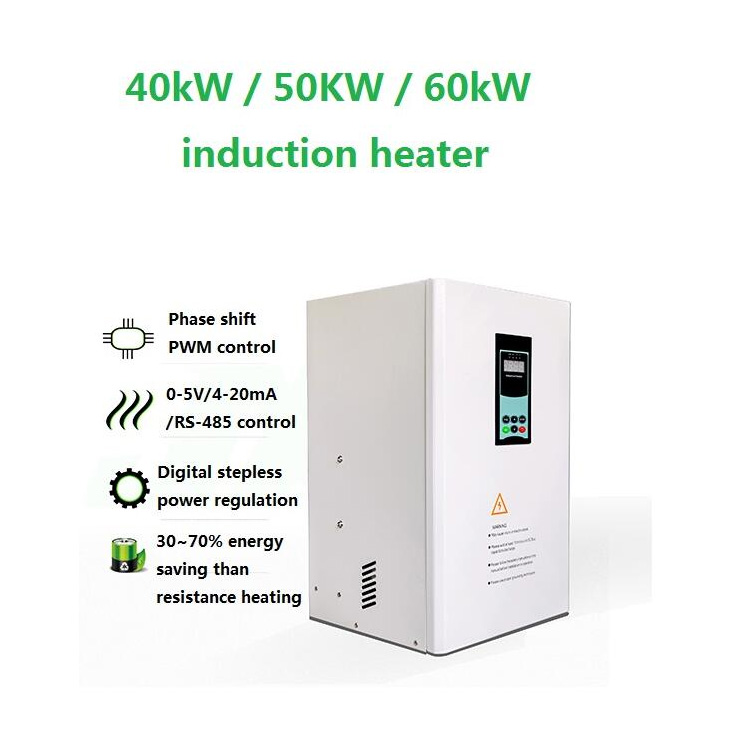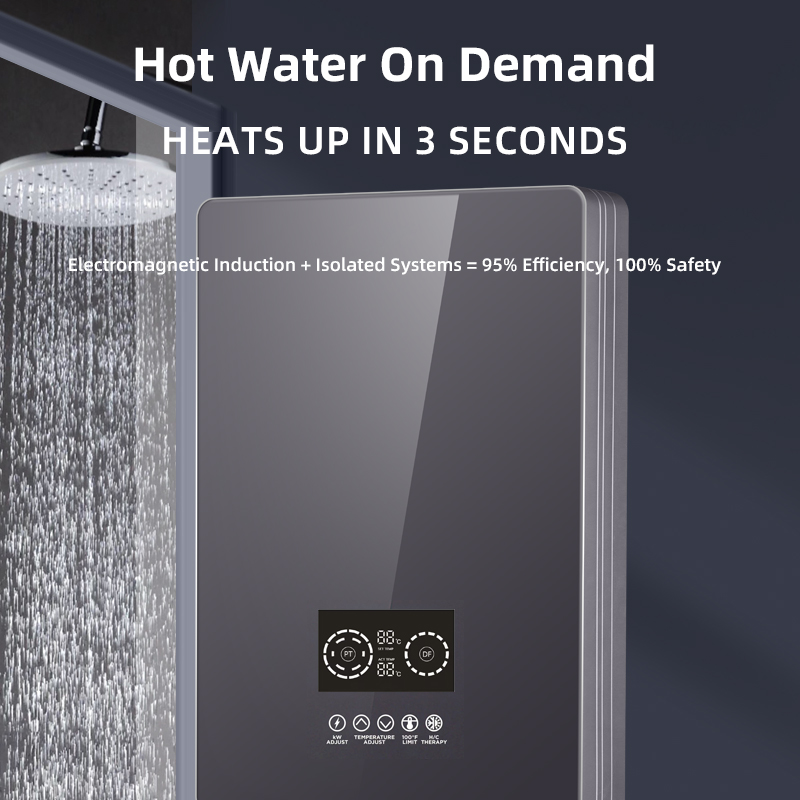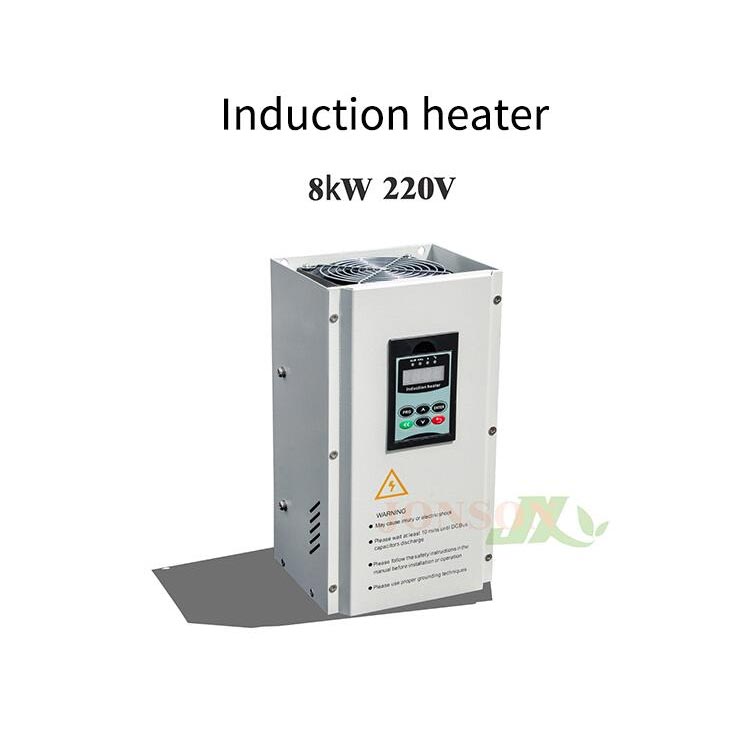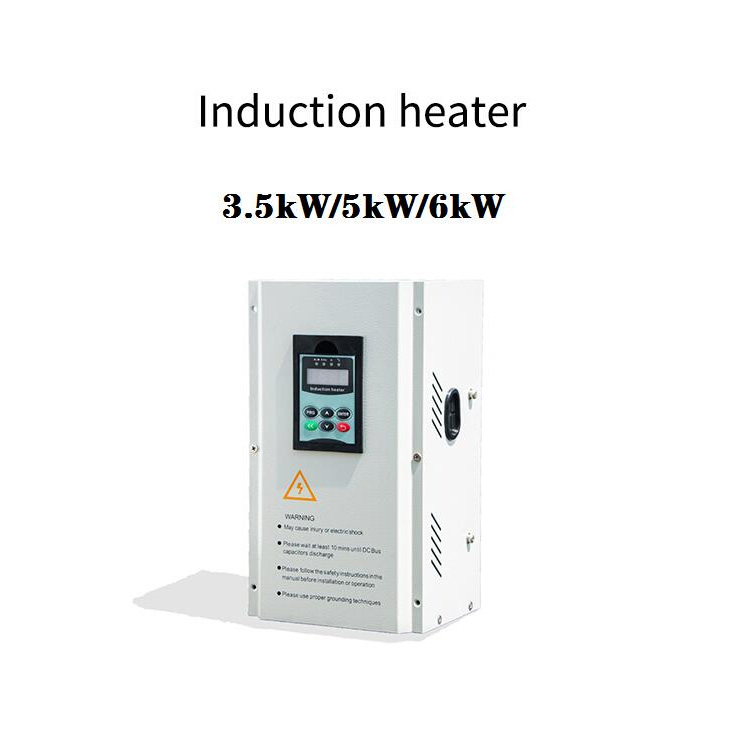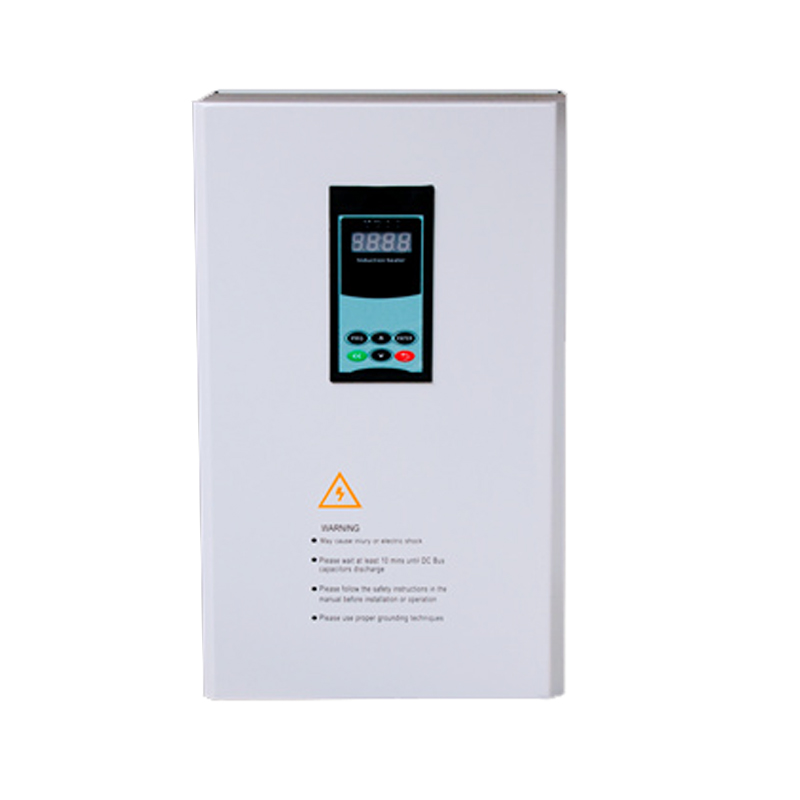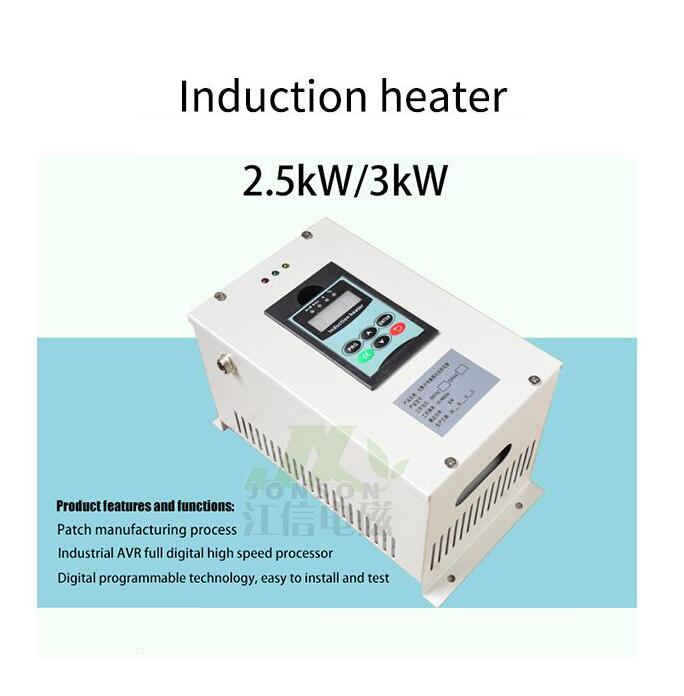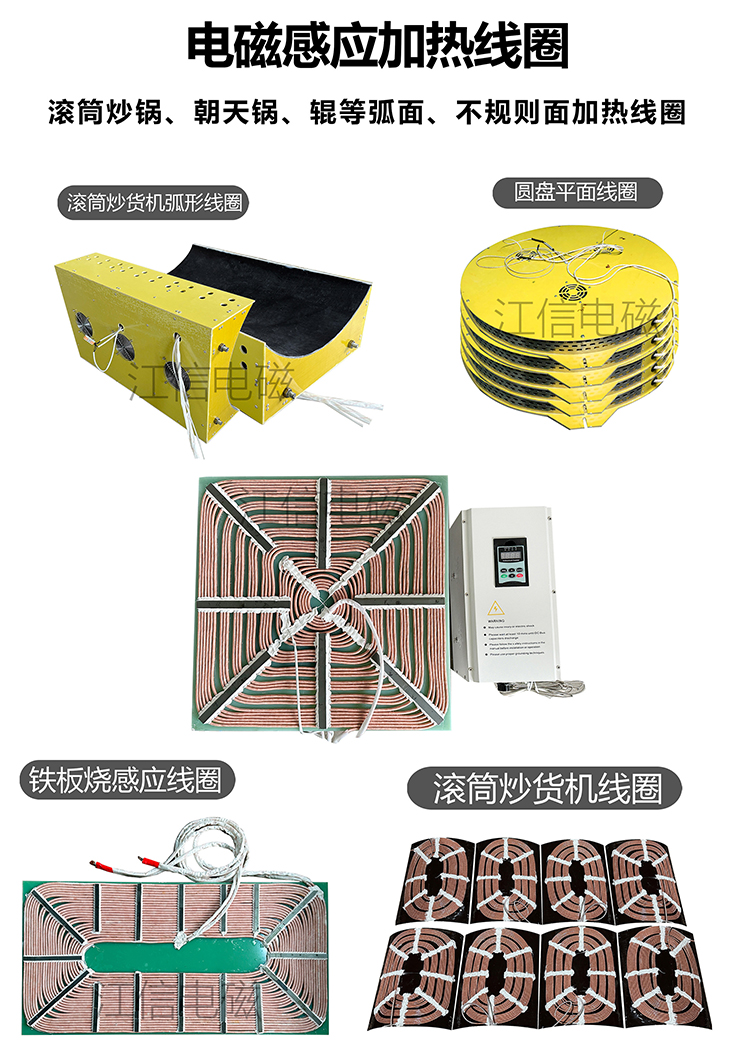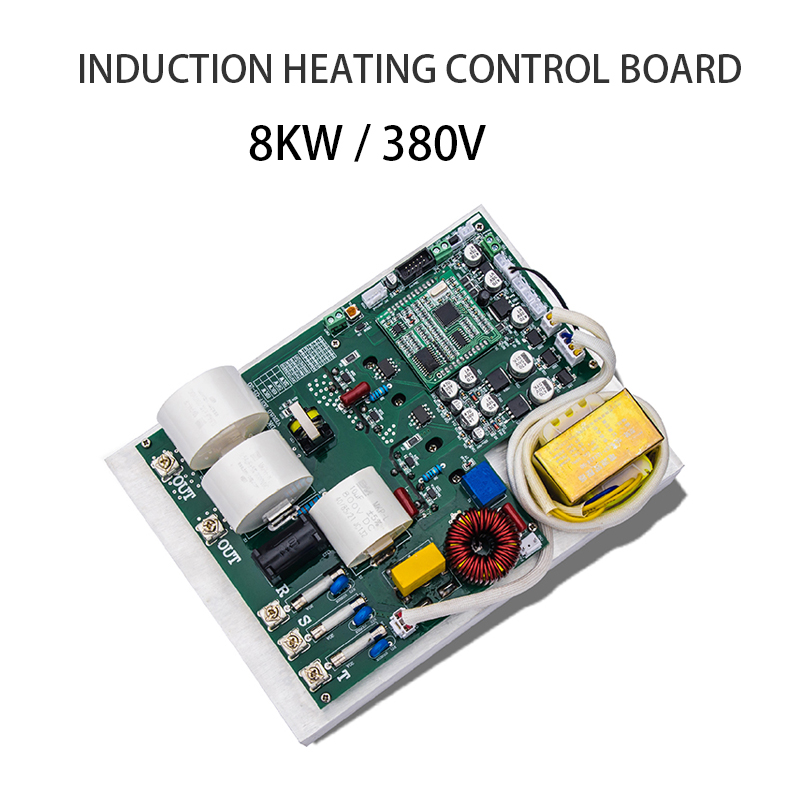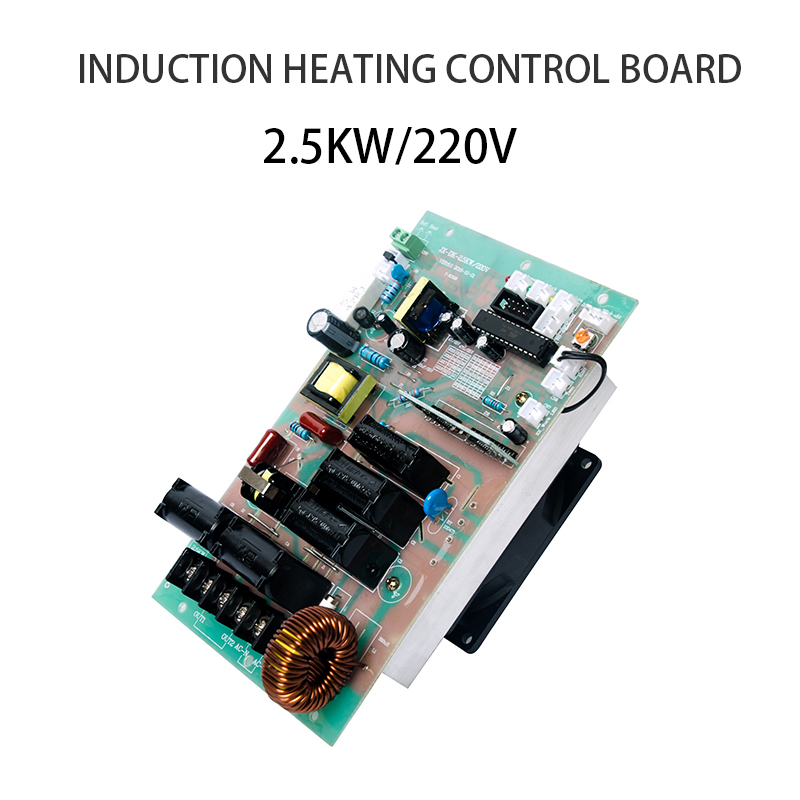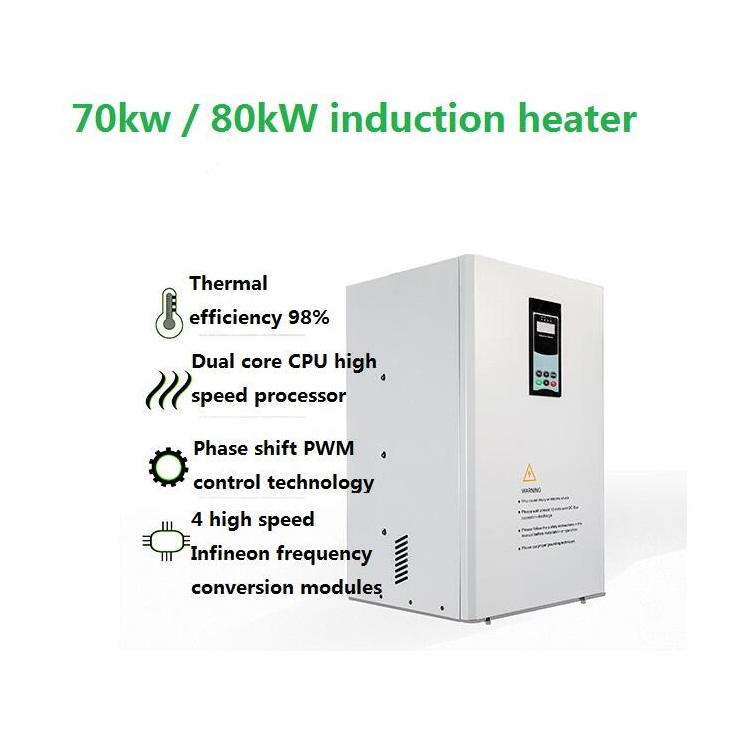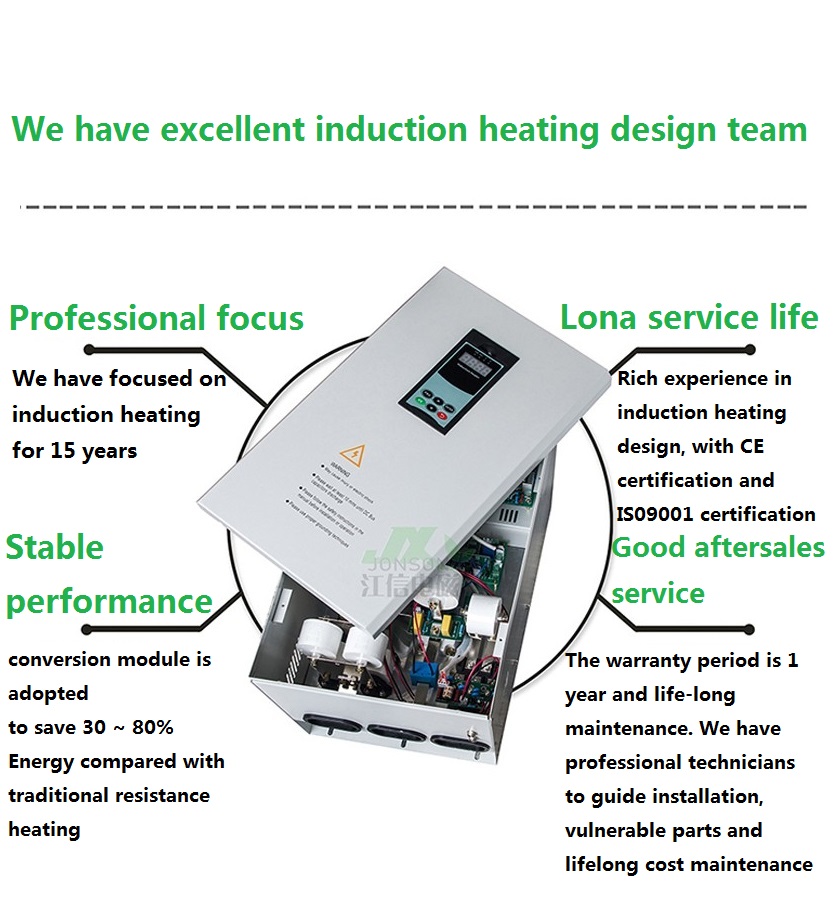In a constant temperature heating device, the control panel acts like the "brain", coordinating the operation of all components and achieving precise heating and intelligent management. It not only affects the heating effect but also directly relates to the stability, safety, and energy - efficiency of the equipment.
So, what is the core function of the induction heater control panel? Here, we will help you understand them!
1. Precise power regulation: Heat up fast, but stay stable
The control panel achieves precise control of heating power by adjusting the output current and frequency. Whether it is slow high temperature or fast heating, it can respond flexibly, improving the efficiency of heating and avoiding energy waste.
2.Intelligent temperature control: maintaining a constant temperature, preventing overwarming
Advanced control panels support thermocouple or infrared temperature measurement, enabling automatic temperature control management﹝The system can dynamically adjust the heating state based on the set temperature, ensuring the workpiece temperature remains constant.It is widely used in heat treatment, welding, smelting and other scenarios.
3.Soft Start/Slow Start: Component Protection, Extend Life
To prevent damage to electronic components from the start-up current surge, the control panel integrates a soft start logic. The equipment starts more smoothly, reducing the impact on core components such as IGBTs and the main board, significantly extending the lifespan.
4. Error Protection and Self Diagnosis: Safety First
The control panel is equipped with comprehensive protection mechanisms for overtension, overcurrent, low tension, phase loss and overheating. Once the anomaly is detected, it will be immediately alerted or automatically stopped, ensuring the safety of equipment and personnel and avoiding unnecessary losses.
5. Telecommunications and remote control: easy integration into industrial systems
Modern control panels generally support communication protocols such as RS485, Modbus, and CAN bus, allowing smooth communication with central controls, supercomputers, and touch screens. This allows remote monitoring and automated control, helping companies move towards intelligent manufacturing.
6. Multi-mode regulation and memory function: Adapt to various process requirements
Some control panels support multi-level heating mode switching (constant power, constant temperature, step heating, etc.) and have parameter memory functions, facilitating repetitive operations and batch management, and improving production efficiency.
In summary:
An excellent induction heater control panel is not just a "switch" -
It is an intelligent control center, a safety guardian, and a key guarantee for stable heating!

